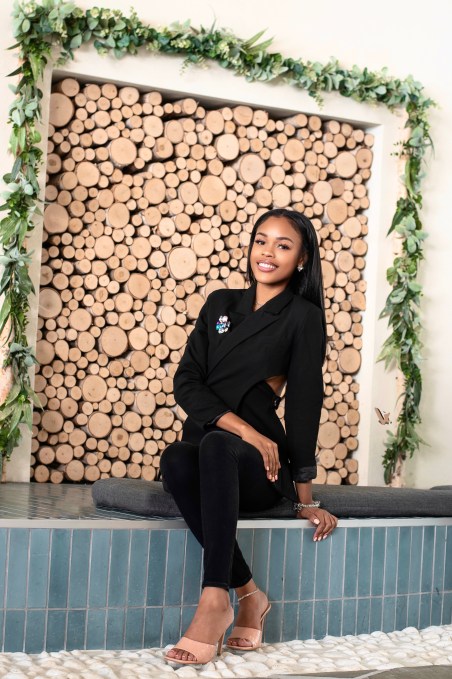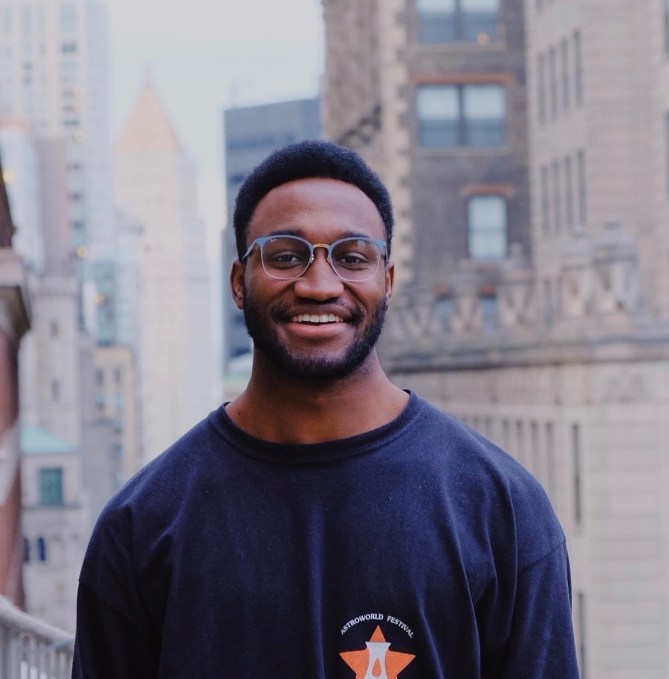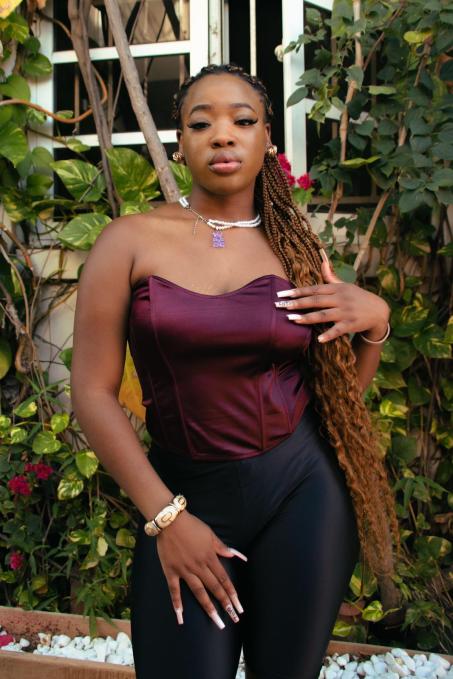One day early in the pandemic, Dazayah Walker came across a job she’d never heard of before: venture capitalist investor.
The pandemic ensured she had time, and intrigued by the profession, she started teaching herself the trade. She soon realized it was a way to build wealth, and as a young Black woman, it was also a viable career path to which she was never exposed.
“This is one of those quietly kept industries where people have been becoming multimillionaires for years,” Walker told TechCrunch. “We just have not been included in that.”
That’s starting to change. Although the investor landscape remains mostly white and male, there has been an uptick in Black VCs striving to fund overlooked founders while simply pursuing a career once obscured from them. This new crop of VCs are starting younger than ever — and like Walker, they’ve set their sights high.
Walker studied economics at Spelman College and worked as an executive assistant at record label Quality Control. Two months after discovering venture capital, she pitched to start the label’s first VC fund. Today, at 24, she runs the label’s entire investment portfolio.
“There is a consistent need for fresh perspectives, new forms of creativity and innovation, and this is done through diversity and inclusion,” Walker said. “It’s an opportunity for [us] to be in a space to have an impact and inspire.”
Another way of looking at the world
Walker initially was worried that her lack of a Stanford degree or Bay Area expertise would hinder her progress, but the perspectives and ideas she brought to the table have helped her establish herself.

Quality Control VC, Dazayah Walker. Image Credits: Dazayah Walker
Atlanta, where Quality Control is based, is an emerging tech hub, and the label is one of the nation’s most popular. Walker says her young perspective is valued as the spending power of Gen Z grows.
She has leveraged the cultural relevance of Quality Control and its artists to build her network, knowing that founders and investors are always looking to associate themselves with whatever’s considered “cool.”
To date, Walker has helped the label execute eight deals, many focused on consumer apps and fintech, and spends time educating her favorite artists about investing. She once wanted to become a music executive but has shed those aspirations for a focus on opening economic opportunities for others who, like her, didn’t know this avenue to prosperity existed.
“There’s so much overlap in the intersection between music and technology,” Walker said. “I see the opportunity for this to be bigger than the now, but as a way to build generational wealth and define a legacy.”
Over in Los Angeles, Jonathan Moore, 25, left his Wall Street career to work as an analyst at TCG Capital Management. He pitched the idea for the firm to launch a crypto fund, believing the intersection of web3 and the creator economy could tap a generation of untapped talent. Since launching the fund in September 2021, he has closed over 20 deals and says the outlook for this year is equally promising.
“What is actually innovative is leaning into passionate communities and areas where people have proven they have existing concern and desire to participate,” Moore said. “I want to empower individuals … I want to prove there is space for all.”
Born in San Francisco, Moore grew up in Littleton, Colorado with a vague understanding of how VC worked, as his father had founded a startup. His investment career started relatively early: He co-led an impact investing fund group while attending Emory University, and, afterward worked at a bank. He soon heard about TCG on a podcast and DM’d an associate at the firm, who helped kickstart the job interview process.

Jonathan Moore, investor at TCG Crypto. Image Credits: Jonathan Moore
As a Black man, Moore remembers moments when he felt that his finance background wasn’t enough to convince people in VC of his potential. But he discovered it was essential to dismiss that if he wanted to achieve his goals.
“I was told that because I didn’t take a certain path, I couldn’t get one of these seats at an early-stage fund,” he said. “The resources are there, but people don’t understand that you don’t need a cookie-cutter background to reach your goals. You can take your own path.”
Paving the path for those to follow
What’s different about this crop of new VCs is that they’re cognizant of how important education is when it comes to investing.
Much like Walker, Jadyn Bryden, 22, also didn’t know anything about venture capital growing up. The Detroit native first found out about VC during her junior year at Harvard, when her student agency job gave her the opportunity to attend a panel on VC, and what she learned left her intrigued.
After expressing her interest in the field, a colleague introduced her to Xfund, which was looking for a Boston-based investor. Two years later, Bryden is a vice president at Xfund with five investments under her belt.
Alongside her job, Bryden has decided to share what she’s learned on her journey on social media, hoping to spur interest in those unexposed to the financial world. Walker too, has a webpage with advice on navigating the VC ecosystem.
Bryden told me a lack of early exposure and the financial risks associated with starting a business often prevents and deters Black people from learning more about VC. Back in Detroit, she said entrepreneurship felt inaccessible to many in her community, and the lack of understanding about the world of startups and VC comes with that.
“There are a lot of people out there, especially people of color, who have never seen this as an option. So how could they go after it?” she continued. “I want to bridge that gap.”
They’re building a global community
This trend of Black Gen Zers venturing boldly into investing isn’t unique to the U.S. In fact, a global community is growing with hopes of increasing economic and social opportunities for the entire diaspora.
Nigerian-born Esther Akpovi, 22, moved to the U.K. when she was seven. Growing up, she wanted to be an entrepreneur and discovered venture capitalism in her teens while researching ways to start a business.

Esther Akpovi. Image Credits: Esther Akpovi
“I remember writing down in my journal when I was 15 that I wanted to be a VC,” Akpovi told TechCrunch. “I didn’t know how I was going to get there, but it looked exciting.”
Lacking a network, she spent her college years talking to her peers, seeking a point of entry into investing. Eventually, a friend introduced her to Ada Ventures, where she served as a scout for nearly two years.
Today, Akpovi is embarking on a journey to launch her own fund. In the U.K., she has a steep hill to climb — as of 2019, more than 75% of VCs were white, and only 30% were women, per a report by the nonprofit Diversity VC. Only 3% were Black, and just 1% of VCs in overall European tech were Black.
Akopvi soon realized that she couldn’t climb this mountain alone and started an online community to connect Black VCs and founders worldwide. The future is cross-cultural collaboration, she says.
Black American Gen Zers come from a different world than her friends back in Nigeria, once hailed the world’s “poverty capital.” Creating a global network makes education and opportunities more accessible, bringing in the fresh perspective that the ecosystem desperately needs.
It sounds like a winning formula for all, but as discrimination continues in the industry, the onus for success doesn’t just fall on these young Black Gen Zers. It falls on everyone.
“I want older generations to believe in our potential,” Akopvi said.
Walker added to that: “I thought my youth was a disadvantage. I think the biggest challenge is being a young Black woman in this space.”
Correction: This article was updated to reflect that Jonathan Moore is 25, not 22.
